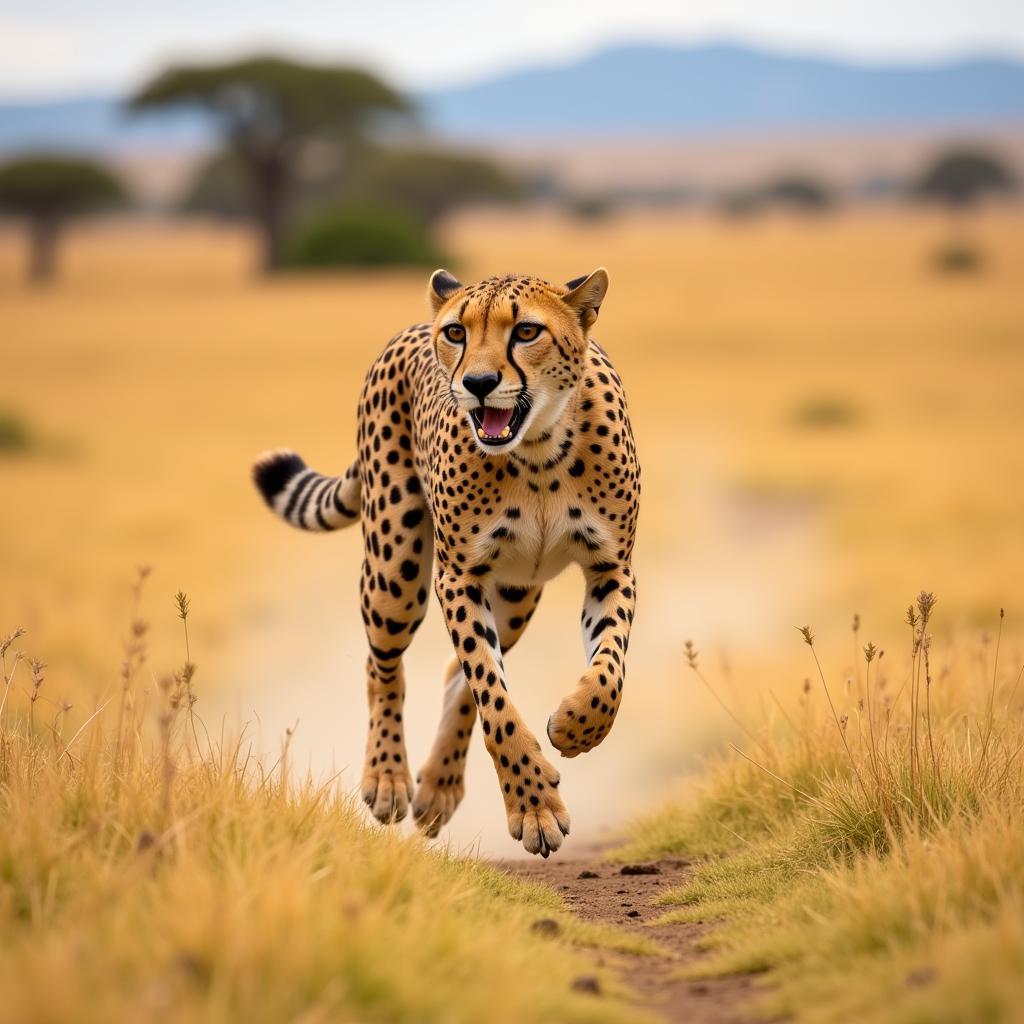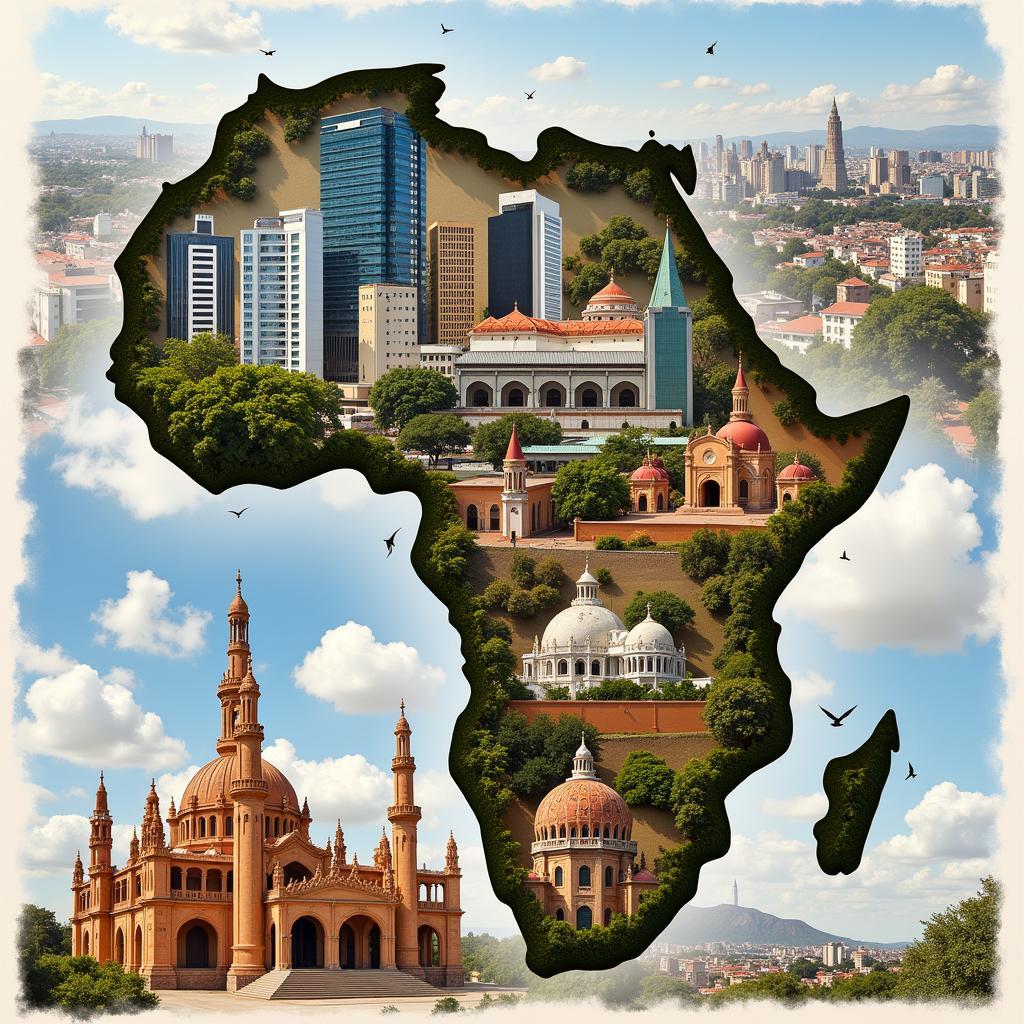Exploring the Diverse African Biotope
The African Biotope encompasses a breathtaking array of ecosystems, from lush rainforests to arid deserts, each teeming with unique flora and fauna. This article delves into the fascinating world of African biotopes, exploring their diversity, challenges, and the crucial role they play in global biodiversity.
Understanding the African Biotope: A Closer Look
What exactly is an African biotope? It refers to a specific geographical area with uniform environmental conditions, providing a living space for a particular assemblage of plants and animals. These biotopes are incredibly diverse, reflecting the continent’s varied climates and topography. From the snow-capped peaks of Mount Kilimanjaro to the depths of the Congo Basin, each biotope presents a unique set of challenges and opportunities for the species that call it home.
The Importance of African Biotopes for Biodiversity
African biotopes are critical for global biodiversity. They harbor an astonishing number of species, many of which are endemic, meaning they are found nowhere else on Earth. Protecting these unique ecosystems is therefore essential for maintaining the planet’s biological richness. The loss of even a single biotope can have cascading effects on the entire ecosystem, impacting everything from insect populations to large mammals.
Threats to African Biotopes
Unfortunately, many African biotopes face increasing threats. Human activities, such as deforestation, agriculture, and urbanization, are encroaching upon these natural spaces, leading to habitat loss and fragmentation. Climate change is also having a significant impact, altering weather patterns and exacerbating existing environmental pressures. These changes threaten the delicate balance of these ecosystems, putting countless species at risk.
Conservation Efforts: Protecting African Biotopes for Future Generations
Recognizing the importance of these unique environments, various organizations and governments are working to protect African biotopes. Conservation efforts focus on creating protected areas, promoting sustainable land management practices, and raising awareness about the importance of biodiversity. These initiatives are crucial for ensuring that these precious ecosystems continue to thrive for generations to come.
What Makes African Biotopes So Unique?
The sheer variety of African biotopes is truly remarkable. From the expansive savannas teeming with large mammals to the vibrant coral reefs of the East African coast, the continent offers a tapestry of life unlike anywhere else. This diversity is driven by the interplay of various factors, including climate, geology, and evolutionary history.
Exploring the Different Types of African Biotopes
The continent encompasses a vast array of biotopes. Some of the most notable include:
- Savannas: Characterized by grasslands and scattered trees, these biotopes support a rich diversity of grazing animals and their predators.
- Rainforests: Home to an incredible array of plant and animal life, these lush forests play a vital role in regulating global climate.
- Deserts: Despite their harsh conditions, deserts support a surprising number of species adapted to extreme temperatures and limited water resources.
- Wetlands: These vital ecosystems provide habitat for numerous waterbirds, fish, and other aquatic species.
- Coastal Ecosystems: Mangroves, coral reefs, and seagrass beds provide critical breeding grounds and nurseries for many marine species.
How Can We Help Protect African Biotopes?
Protecting these vital ecosystems requires a collaborative effort. Individuals, communities, and governments all have a role to play. Supporting conservation organizations, making sustainable choices in our daily lives, and advocating for stronger environmental policies are just a few ways we can contribute to the preservation of African biotopes.
african cichlid tank background
In conclusion, African biotopes are a treasure trove of biodiversity, playing a crucial role in the health of our planet. Protecting these unique ecosystems is essential for ensuring a sustainable future for all. By understanding the challenges they face and working together to implement effective conservation strategies, we can safeguard these precious environments for generations to come.
FAQ:
- What is the largest biotope in Africa?
- What are the main threats to African biotopes?
- How does climate change impact African biotopes?
- What are some examples of endemic species found in African biotopes?
- How can I contribute to the conservation of African biotopes?
- What is the role of local communities in biotope conservation?
- What are some successful biotope conservation projects in Africa?
Other questions to consider:
- What are the economic benefits of biotope conservation?
- How can tourism be managed sustainably in African biotopes?
- What is the future of African biotopes in the face of global change?
Further reading:
- Explore other articles on our website about African wildlife and conservation.
Call to Action:
For further information or assistance, please contact us at +255768904061 or kaka.mag@gmail.com. You can also visit us at Mbarali DC Mawindi, Kangaga, Tanzania. Our customer service team is available 24/7.


